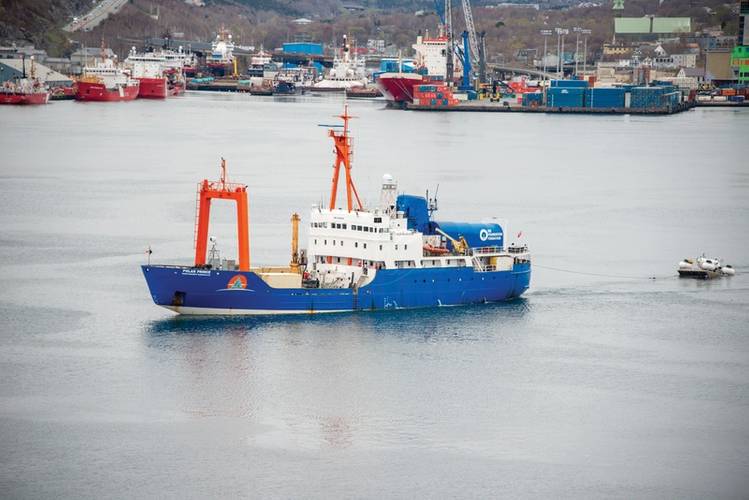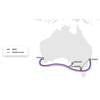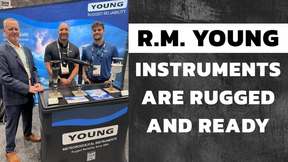Op/Ed: We Cannot Let the OceanGate Tragedy Put a Pause on Ocean Exploration
In the wake of the catastrophic implosion of OceanGate’s Titan submersible during a dive on the wreck of RMS Titanic, the marine technology community continues to question how to prevent such a tragedy from recurring. An obvious option is to impose international safety regulations regarding such expeditions.
For manned submersibles, there is merit in considering restrictions based upon technical criteria. OceanGate refused to obtain DVL certification for Titan. This was one of several safety concerns raised by the manned underwater vehicles committee of the Marine Technology Society in a 2018 letter to OceanGate CEO Stockton Rush, who was among the victims in the mishap.
The Titan also lacked critical technologies which could enhance submersible safety, such as a high precision inertial navigation system (INS), an Emergency Position Indicating Radio Beacon (EPIRB), and a means of reliable and redundant communications with her mothership.
Mandating technical standards for essential life support and operational systems in manned submersibles can mean the difference between success and failure – as well as life and death – in future undersea expeditions. Consider the remarkably similar situation following the sinking of Titanic.
Two years after the disaster, the major maritime nations passed the International Convention on the Safety of Life at Sea (SOLAS), which established the minimum safety measures in the construction, equipment, and operation of merchant ships. Because SOLAS has been the backbone of maritime safety for nearly a century, the international community should convene a SOLAS-like convention for manned submersibles or incorporate this vehicle class in the SOLAS convention itself
At the same time, we must ensure any international regulations acknowledge the stellar track record of both manned and unmanned ocean exploration. Record-setting explorer Victor Vescovo, for example, has completed 15 successful submersible dives to Challenger Deep in the DNV-certified submersible Limiting Factor, in addition to reaching all four of the ocean's 10,000+ meter deepest points. In the case of unmanned exploration, during my tenure with the National Oceanic and Atmospheric Administration’s (NOAA), I initiated the 2020 national strategy to map, explore, and characterize the ocean in the U.S. EEZ, the implementation plan for which emphasizes the use of autonomous underwater systems and remotely operated vehicles (ROVs).
Ocean exploration is about much more than the purpose of OceanGate’s expedition – adventure tourism.
At stake are the immense benefits to national, natural, and economic security of such activity. Consider the Woods Hole Oceanographic Institution’s human occupied vehicle Alvin. For over six decades, the Office of Naval Research has sponsored research using the submersible to gain valuable technical knowledge for the U.S. Navy’s undersea warfare capabilities. Similarly, for over two decades NOAA’s Office Ocean of Exploration and Research has managed ocean mapping and scientific discovery missions to inform sustainable fisheries management, development of offshore renewable and nonrenewable energy, and protection of economically important natural and cultural resources.
For these reasons, I signed an agreement with Victor Vescovo which we described in our previous editorial in the “The Final Word” section of the November/December 2022 issue of Marine Technology Reporter Magazine. This agreement between NOAA and Caladan Oceanic resulted in the survey of over 1 million square kilometers of previously unsurveyed seafloor, including the mapping of the Aleutian Trench for the first time, as well as the most precise depth measurement of Challenger Deep. As we argued in the article, beneficial accomplishments like these will continue to accrue as long as regulations do not overly restrict their safe and sustainable execution.
The massive media response to the OceanGate tragedy showcased a cadre of commentators who have decades of leadership in the arena of ocean science, technology, and discovery. These included Dr. Robert Ballard, the man who found Titanic, and James Cameron, producer of the Oscar winning film about the tragic ship. The common denominator between them and the unfortunate crew of Titan was an unbounded interest in undersea exploration. If we wish to honor the lives of these fellow explorers lost too soon, we should not put a pause on what was their greatest passion.











![Microplastic beads seen in the central tube of a copepod [their intestinal tract], as evidenced here, fluorescently labelled beads help with visualization and identification. © PML](https://images.marinetechnologynews.com/images/maritime/w100h100padcanvas/microplastic-beads-seen-166795.jpeg)










 December 2025
December 2025



